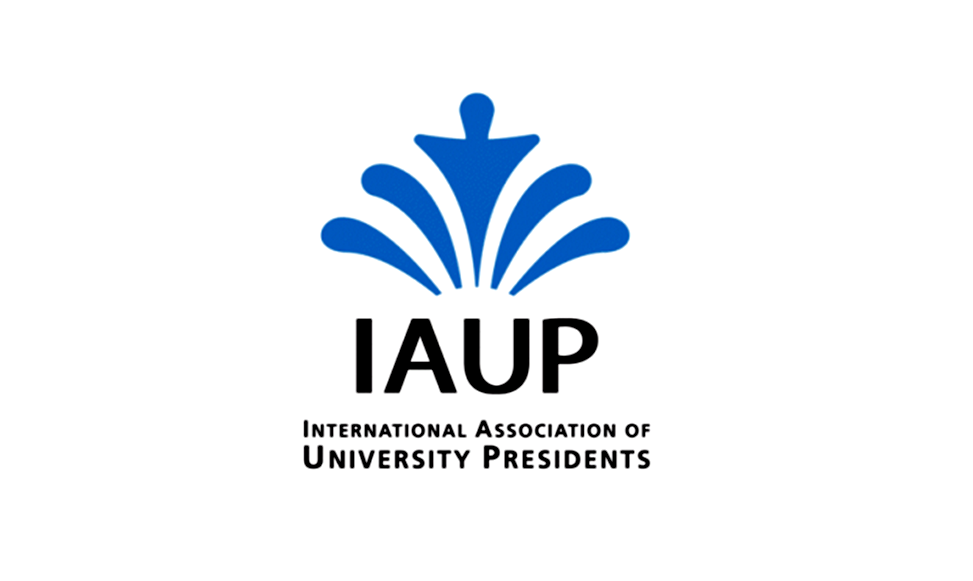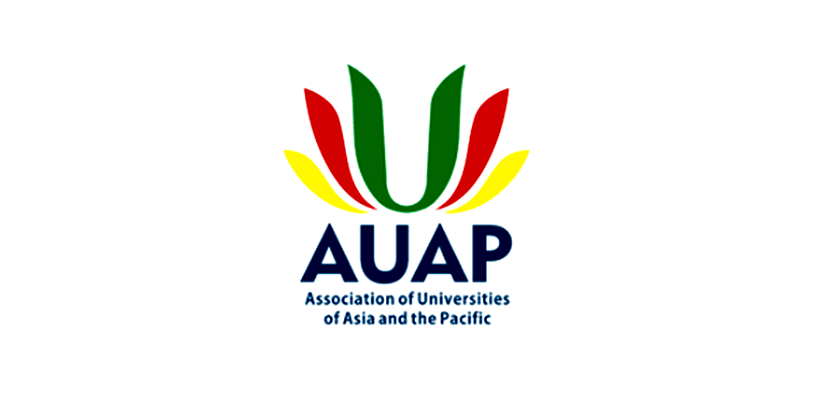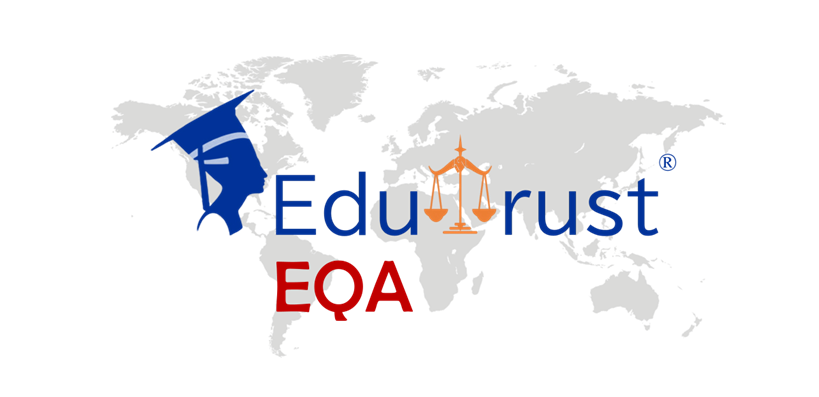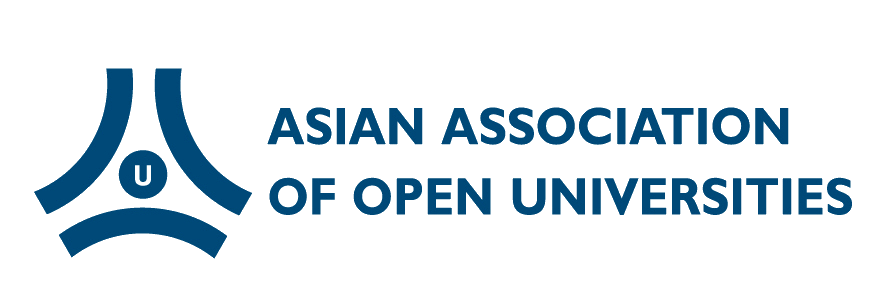College News
Promote the Internationalization of High-level Talent Cultivation in Traditional Chinese Medicine

The Asia Pacific School of Business and Zhongguancun Asia-Pacific Institute of Life Science and Technology Reach Strategic Cooperation to
Promote the Internationalization of High-level Talent Cultivation in Traditional Chinese Medicine
Beijing, June 21, 2025 — The Asia Pacific School of Business (APSB)’s Joint Graduate School of Traditional Medicine (JGSTM) and the Zhongguancun Asia-Pacific Institute of Life Science and Technology (AILST) today officially signed the *Framework Agreement on Master-Doctor Recruitment Entrustment*. Relying on the "education + research + industry" trinity model, the two parties will jointly establish an interdisciplinary talent cultivation system for "traditional Chinese medicine (TCM) + life sciences," marking a key step in collaborative innovation between an international educational institution and a national-level research platform in the field of TCM modernization. This cooperation provides a new paradigm for cultivating compound talents with both traditional medical heritage and international research vision.
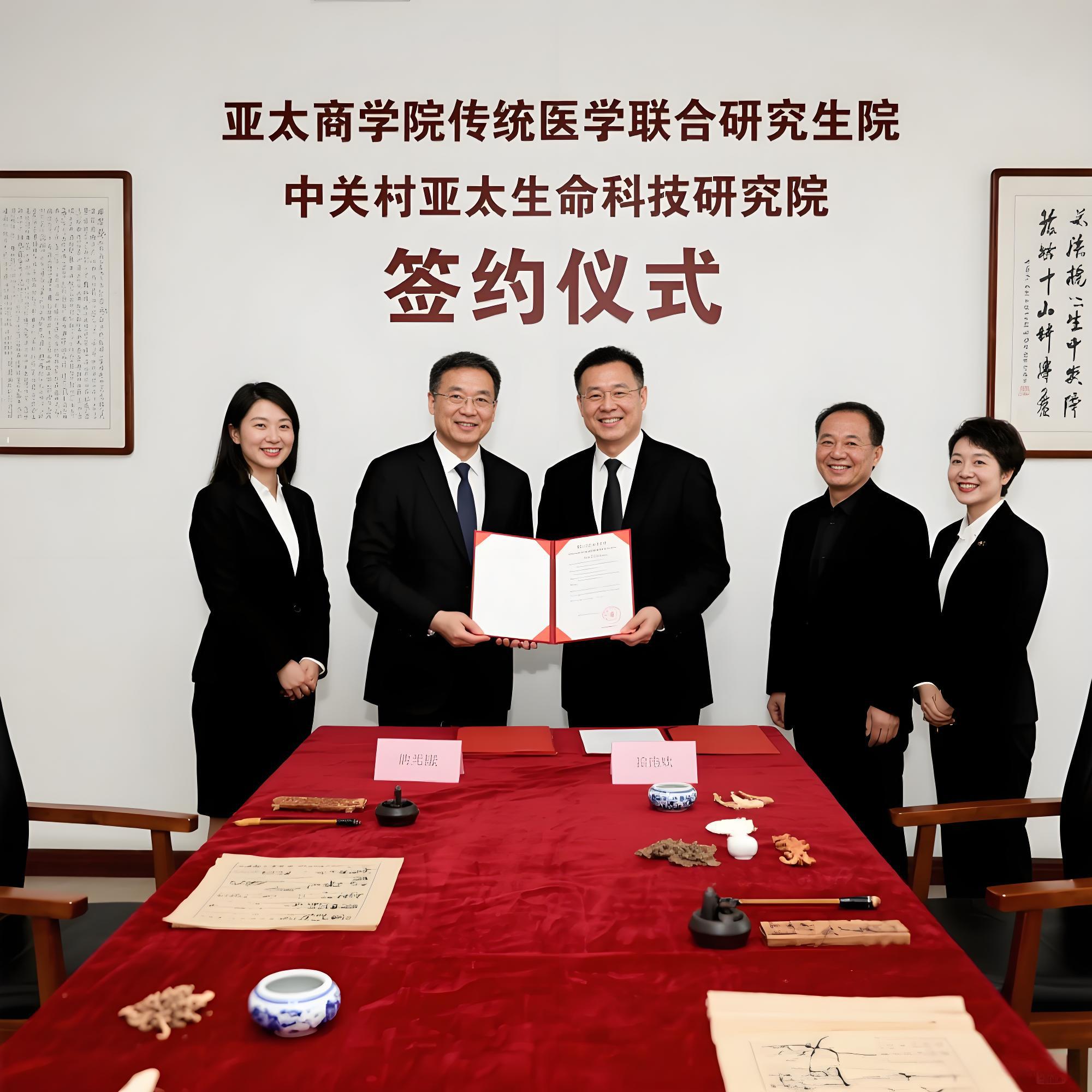
Strategic Collaboration Between International Education and National-Level Research Platforms
As an internationally influential higher education institution in the Asia-Pacific region, APSB originated from the Qiren Academy founded in Singapore in 1995. It was approved by the Singapore Ministry of Education to upgrade to an associate degree-granting institution in 1999 and has now developed into a comprehensive higher education institution with six colleges and four international campuses (Singapore main campus, Hamilton campus in New Zealand, Colorado Research Center in the U.S., and Paris campus in France). Adhering to the educational philosophy of "integrating Chinese and Western knowledge, unity of knowledge and action," the college has obtained nine international authoritative certifications, including accreditation from the Accreditation Service for International Schools, Colleges, and Universities (ASIC), International Accreditation Council for Business Education (IACBE), Association of Collegiate Business Schools and Programs (ACBSP), and membership in The Association of MBAs & The Business Graduates Association (AMBA&BGA). It is also accredited by EduTrust Education Quality Accreditation (EEQA), Quality Matters (QM), International Association of Private Universities and Colleges (IAPUC), etc. Through cross-authorized academic appointments, it is recognized by the Council for Higher Education Accreditation (CHEA-CIQG) in the U.S. and serves as a core member of international organizations such as the Asian Association of Open Universities (AAOU), Asia-Pacific University Presidents' Forum (AUAP), United Nations Academic Impact (UNAI), and Academic Council on the United Nations System (ACUNS). Meanwhile, APSB actively introduces ISO international quality standard systems and has comprehensively passed four educational certifications: ISO9001:2015, ISO21001:2018, ISO29990:2010, and ISO29995:2021. With 23 associate degree, 29 bachelor's degree, 35 joint master's degree, and 17 joint doctoral degree programs, it has cultivated nearly 32,000 graduates, with academic influence spanning more than 40 countries or regions worldwide.
As a dispatched institution of the Beijing Municipal People's Government and a non-profit first-level legal entity guided by the Zhongguancun Management Committee (a department at the departmental level), AILST, together with the Beijing Life Science and Technology Industry Association, constitutes the "One Association, One Institute" innovation system. It serves as a strategic support platform for the integrated development of "production, education, research, and application" in China's life science and technology field. Its core task is to explore research mechanisms in line with international standards and carry out original basic research with international first-class scientist teams. Currently, it has gathered hundreds of top scientific research talents, undertaken multiple national key research projects, and established more than 20 joint laboratories with domestic and foreign life science and technology enterprises, forming a full-chain innovation ecosystem from basic research to industrial application.
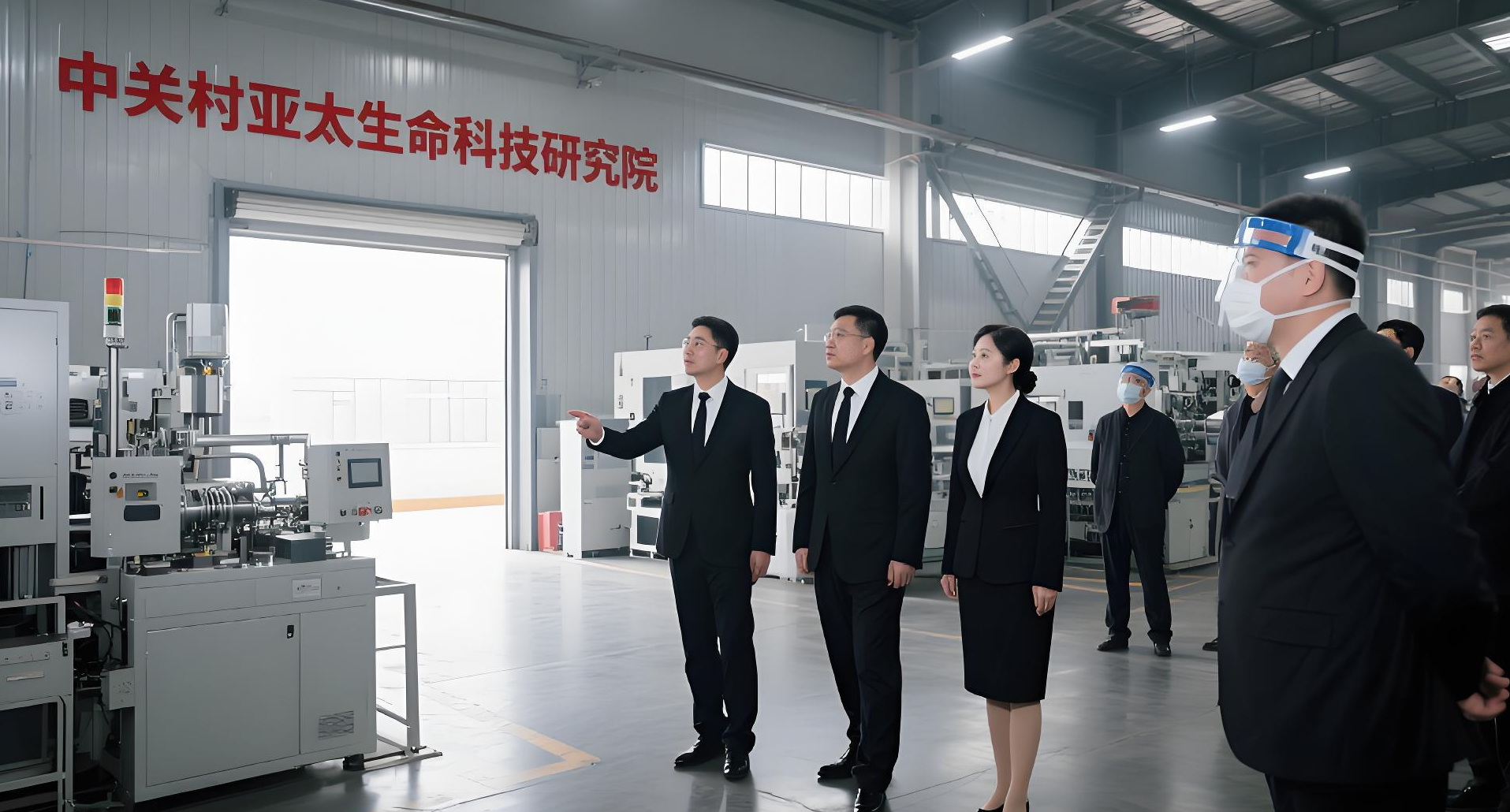
Innovative Practice of Interdisciplinary Cultivation System
According to the cooperation agreement, the two parties will focus on the 2025 master-doctor recruitment plan (150 master's students and 45 doctoral students) and build a "dual-track" cultivation model. In terms of curriculum design, JGSTM (a first-level discipline institution approved by the Ministry of Education and Training of Vietnam) will be responsible for core courses such as classic TCM theories and clinical diagnosis and treatment techniques, while AILST will offer modern science and technology courses such as molecular biology and precision medicine based on its life science research platform, achieving deep integration of "traditional medical thinking + modern research methods." Notably, students will have the opportunity to participate in AILST's special research projects on "TCM modernization," conducting interdisciplinary topics such as research on active ingredients of traditional Chinese medicine and the neural mechanisms of acupuncture in international first-class laboratories.
The recruitment process adopts a "research potential-oriented" mechanism. AILST will, through channels such as cross-border seminars on "TCM + life sciences" and research project open days, jointly connect with national TCM universities through the Beijing Life Science and Technology Industry Association, focusing on screening candidates with research experience or background in industry-university-research projects. A relevant person from APSB revealed: "We will provide admitted students with a 'double supervisor system' — each student will be equipped with both a TCM clinical supervisor and a life science research supervisor to ensure precise docking between academic cultivation and industrial needs."
Dual Guarantees of Internationalization and Non-Profit Attributes
This cooperation highlights the unique advantages of the two institutions' attributes: APSB's nine international certification systems provide academic quality endorsement for the project, and its campuses in France, the U.S., etc., will offer students international exchange opportunities. As a public service platform, AILST will ensure that recruitment service fees are specially used for scientific research resource sharing and academic activities, strictly following the operational norms of non-profit organizations. The agreement specifically states that funds obtained from the cooperation project will be prioritized to support the "TCM + Life Sciences" interdisciplinary research fund, subsidizing students to participate in international academic conferences and publish papers in SCI journals.
The person in charge of AILST emphasized: "As a research institution guided by the Zhongguancun Management Committee of the Beijing Municipal People's Government, we will give full play to the resource integration capabilities of the 'One Association, One Institute' system and provide students with full-cycle support from research to employment through more than 300 member enterprises linked by the Beijing Life Science and Technology Industry Association." It is reported that the two parties plan to further explore in-depth cooperation such as co-building joint laboratories and applying for national research projects under the framework of the agreement, promoting the transformation of TCM basic research achievements into clinical applications.
Industry Experts: Opening a New Era for Cultivating Modernized TCM Talents
Industry experts point out that this cooperation breaks through the geographical and disciplinary boundaries of traditional medical education. Prof. Li Ming, a member of the Chinese Academy of Engineering and an expert in TCM modernization research, commented: "The combination of APSB's international education system and AILST's national-level research platform has created a closed-loop model of 'local cultivation + international certification + industrial implementation,' which has demonstrative significance for solving the pain points of 'difficult inheritance and slow innovation' in the TCM field." Data shows that less than 15% of China's high-level TCM talents currently have interdisciplinary backgrounds, while the cultivation program of this cooperation will significantly enhance talents' modern research capabilities through a curriculum where life science courses account for 30%.
With the strategic deployment of the *"Healthy China 2030" Planning Outline* for the innovative development of TCM, this cooperation is regarded as a typical case of optimal allocation of educational and research resources. In the future, the two parties will advance the cooperation in a three-year rolling cycle, planning to cultivate no less than 2000 TCM doctoral talents with international vision by 2028, providing core talent support for the standardization and internationalization of TCM.
Zhongguancun Asia-Pacific Institute of Life Science and Technology official website: https://www.ailst.org


